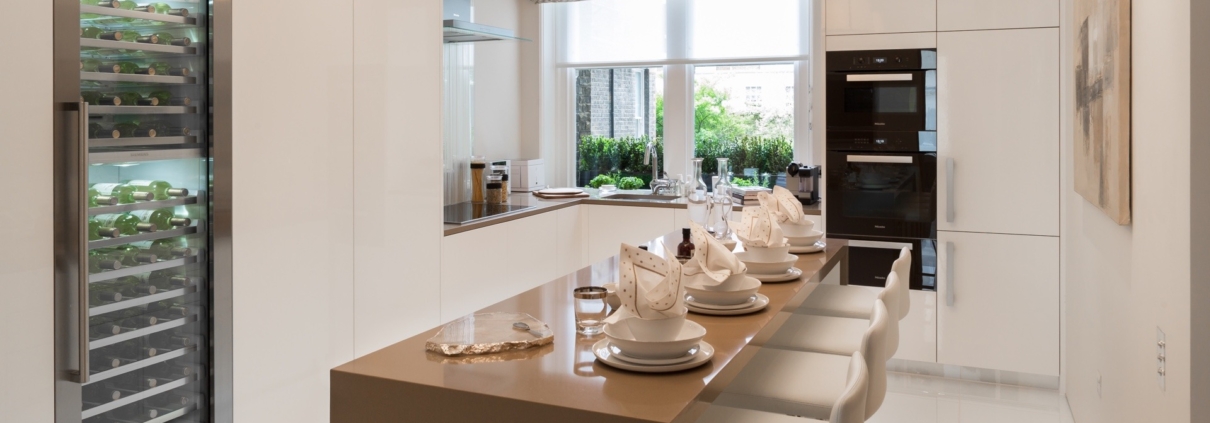Granite vs Quartz Worktops: Difference Between Quartz and Granite
Free Sample Are you not sure whether to use granite vs quartz worktops for your kitchen? Do you keep receiving different opinions and ‘facts’ about each material? Look no further! Here at KML, we will give a full break down of each stone type which will make your decision much easier! Here at KML, we will give a full break down of each stone type which will make your decision much easier!
Lets begin by comparing granite and quartz worktops with a brief breakdown before we dive into some of the finer points.
Quartz vs Granite Worktops : Which Worktop Material is Good decision
What Is Quartz?
Quartz is an engineered stone which contain crushed quartz mixed with resin in a ratio of approx 93% quartz to 7% resin. As Quartz is a manufactured stone, the colours and designs are endless. With 21st century technology, Quartz worktops are becoming more and more like Marble and Granite, without all the maintenance and hassle.
In-depth look at the Pro’s and Con’s of Quartz
Just like Marble and Granite, Quartz worktops also have their own set of Pro’s and Con’s:
- Quartz worktops are just as strong as Granite. Due to there added benefit of flexibility, it is much more durable and easier to work with during the installation process.
- Quartz is non-porous and does not require any sealing. The stone offers a virtually no-maintenance material. All required to keep it looking nice and fresh, is warm water and soap detergent like fairy liquid.
- One minor drawback on Quartz Worktops is that UV rays can cause the pigments (resin) to discolour over years of constant sunlight. However, most Quartz manufacturers offer at least a 10 year warranty which will cover this issue.
- The joint lines are more discreet in Quartz than Granite or Marble. Quartz is a more Contemporary design, so its ability to hide the joint lines, makes this type of material more attractive.
What Is Granite?
Granite is quarried all over the world in forms of large blocks from the earths natural nature. The blocks will then go through rigorous procedure of being sliced down into ‘slabs’ and highly polished to show its beauty.
In-depth look at the Pro’s and Con’s of Granite
Here is a list of important drawbacks and benefits when choosing a Granite Worktop for your kitchen:
- Unlike Quartz, the appearance is never uniform. These stones are coming out of the natural resources of Earth. This particular point is a benefit for the material, however many consumers tend to think this is a drawback. Mostly due to faults and imperfections in the material.
- We recommend all Granite Worktops to be sealed on installation. Even though the porosity level is very low, dropping wine or acidic food on the worktop can leave marks/stains. Please view our ‘Scheduled Maintenance’ page, if you require your Granite Worktop to be re-sealed.
- Even though Granite is very durable, it is not to be considered as indestructible. It is a natural stone which is prone to chippings and breakages should it be subjected to heavy abuse.
- With Granite, it is impossible to completely hide the joint line. We do aim to create the smallest joint line as possible.
- Samples or swatches should never be considered as the final representation of the final product. As Granite is natural, veins, grains and colour will vary from block to block. Always make sure to see the full slab before the fabrication process
When upgrading your kitchen to stone worktops, it’s hard to go wrong with either quartz or granite. Delivering an exciting combination of style and strength, both quartz and granite have certain benefits that make them such a popular choice in kitchen worktops. While a quartz countertop is a very low maintenance surface, it falls short in the aesthetics department to granite, which does require a little extra effort to keep looking its best.



Leave a Reply
Want to join the discussion?Feel free to contribute!